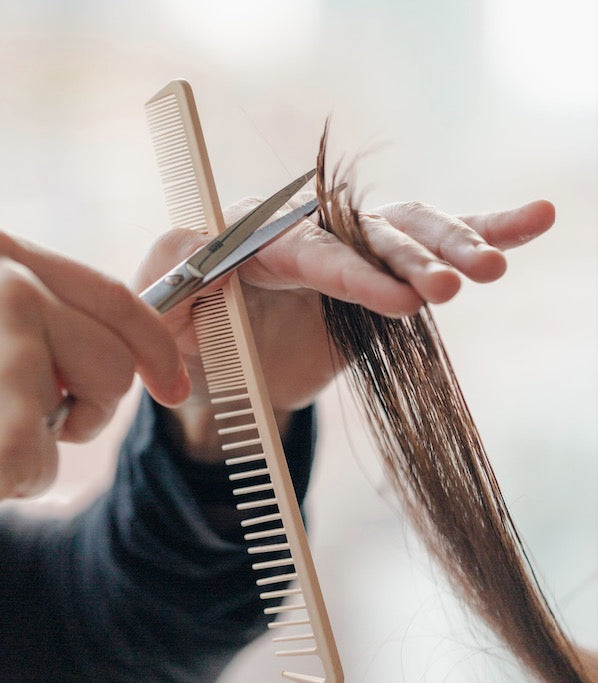
What happens to our hair as we age?
As we age, several changes occur in our hair due to a combination of genetic factors, hormonal changes, and environmental influences. Here are some of the most common changes that happen to our hair as we get older:
Greying:
One of the most noticeable changes is the greying of hair. The pigment-producing cells in the hair follicles gradually become less active, leading to a loss of melanin, which gives hair its colour. As a result, hair turns grey and eventually white.
Thinning:
This does not mean hair loss, this is literally the hair strands becoming thinner and weaker. This can be due to a variety of factors, including changes in hormone levels, reduced blood flow to the scalp, and decreased activity of the hair follicles. Thinning hair can lead to a loss of volume and density.
Slower growth:
Hair growth tends to slow down with age. The growth phase of the hair follicles (anagen) becomes shorter, and the resting phase (telogen) becomes longer. This results in slower overall hair growth and a longer time between hair cycles.
Reduced oil production:
The sebaceous glands in the scalp produce less oil as we age. This can lead to drier and more brittle hair, making it more prone to breakage and damage.
Changes in texture:
The texture of hair may change over time. Some people may experience their hair becoming coarser, while others may find it becomes finer. These changes are influenced by genetics and hormonal fluctuations.
Hair loss:
Hair loss, also known as alopecia, is common as people age. Both men and women can experience age-related hair loss, although it often presents differently in each gender. Male pattern baldness (androgenetic alopecia) and female pattern hair loss are two common types of age-related hair loss.
Reduced elasticity and strength:
Hair can lose its elasticity and strength with age, making it more prone to damage from styling, environmental factors, and chemical treatments.
Changes in colour and texture:
Hair may also become more porous, making it more susceptible to absorbing and retaining chemicals from hair dyes and styling products. This can alter the color and texture of the hair.
-
It's important to note that these changes can vary widely from person to person, and not everyone will experience all of these changes.
Additionally, the rate and extent of these changes can be influenced by genetics, overall health, and lifestyle factors such as diet and stress management.
While some age-related hair changes are natural and unavoidable, TenT does over a great range of both natural and clinical products that will help with your hair health.
The core note is that getting ahead of any hair related issues offers the strongest opportunity for enjoying great, thicker, healthier hair for longer.